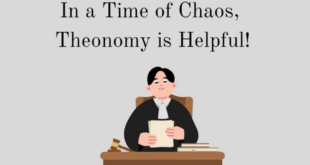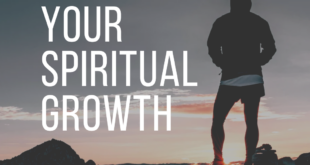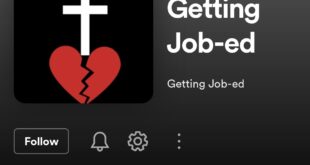Passover and Easter have a deep connection rooted in the Old Testament to the New Testament. As we are approaching Passover and Easter this week, I felt it necessary to post a reflection on that connection. The following is a paper I wrote for Belhaven University in the Old Testament Pentateuch course discussing the connection of the Passover in Exodus 12 and 13 to Jesus:
***
The Passover has major implications for modern applications as well. After the New Covenant was instituted, Christians now observe the Lord’s Supper in place of Passover, but major parallels can be drawn when these are stood next to each other.
As Dr. Pratt discussed in his lecture, our story today in the biblical timeline is the same story that was occurring for the Israelites in the day of Moses. (1) If we look at Passover as a whole, the Israelites were under a tyrannical rule and under bondage to slavery, they were then rescued and delivered from that bondage, and then once delivered, they moved towards the Promised Land. We are on this same path, just at a different time in history and in a different setting. We too were under the bondage of sin and death, under the rule of Satan (Ephesians 2:1-3). But God, by His infinitely holy wisdom and power, through His grace, made us alive in Christ’s atonement (Ephesians 2:4-9). God delivered us from Satan’s rule and sin’s bondage, moving us towards the New Heaven and New Earth that we read about in Revelation 21-22. Christ’s atonement purifies believers, moving them forward towards their ‘Promised Land.’ (2) This progression in our modern time is a mirror of what the Passover was for the Israelites in their time.
When examining the modern applications of the Passover, the Passover has to be viewed through the lens of Christ and through the New Covenant (New Testament). When doing so, we will discuss how Passover is seen through Christ’s ministry in periods of time by the inauguration, continuation, and consummation. (3)
The Inauguration is noted to be the time in which Jesus came to instill His earthly ministry during His first advent all the way to the end of the apostolic age. (4) During the inauguration period all the way up until Jesus’ death on the cross, Jesus and His disciples were living under Old Testament regulations and observances. This is noted in multiple sections within the four gospels, however, we see that Passover is observed by Jesus and His disciples in Matthew 26:17, Mark 14:12, Luke 22:7, and John 13:1. What is striking is the timing of this event in all four gospels: the Passover was occurring from the time of Jesus’ night of betrayal all the way to His death on the cross.
Jesus and His disciples make preparations to observe Passover in Matthew 26:26-30 and Luke 22:14-20. As Dr. Tim Mackie observed in his lecture on the Lord’s Supper, there is one key element that is missing from Jesus’ Passover meal in both Matthew and Luke: the lamb. (5) We observe that the unleavened bread is present during the Passover meal observed by Jesus and His disciples, and also the bowl in which the bread was dipped in, as was the common observance in Passover at that time, (6) yet the lamb is absent. The Israelites, at this point, had been observing the Passover meal for over 1,000 years and as we observed early, the Passover lamb was at the heart of the meal. (7) This was not a coincidence᠆ this is divinely inspired placement within Scripture. Jesus was noted to be the “lamb of God, who takes away the sin of the world” in John 1:29 CSB. Jesus came to set the captives free, to destroy the tyrannical rule of sin and Satan, and to purify His believers, all to the praise of His glorious grace (Luke 4:18; 1 John 1:7, 3:8; Ephesians 1:3-14). Even as a foreshadowing from Exodus 12:46, Jesus’ bones were not broken while being tortured and crucified (John 19:31-37). This victory over sin, death, and Satan is won by the blood of the Lamb (Revelation 12:11). This is truly remarkable: the lamb was not absent from the Passover meal that Jesus and His disciples observed. Jesus was the Passover Lamb to be slain in order to cover our sins and remove divine wrath intended for sinners (Romans 3:21-26).
The Passover that Jesus and His disciples observed on the night of His betrayal was different than the previous Passovers. Jesus takes the bread, breaks it, and states, “This is my body, which is given for you. Do this in remembrance of me (Luke 22:19 CSB).” He then takes the fruit of the vine and states, “This cup is the new covenant in my blood, which is poured out for you (Luke 22:20).” Jesus has now begun to show that the New Covenant is a new and different time period with new observances, yet, echoing the Old Covenant. Jesus is now our Passover lamb by His blood that was spilled, and He is calling His disciples to remember this
The continuation period is noted as the period we currently live in which is the time after the apostolic age all the way to the promised New Heaven and New Earth. The implications of what Jesus did by instituting the New Covenant affect our lives today. Jesus, similar to that of the Old Covenant, is calling His followers to “remember” what is getting ready to occur (His death on the cross and why this has to occur) and to observe this ritual. We see this practice continued in 1 Corinthians 11:17-26 and Paul (the author), is calling us to do the same in observing this practice.
This call to remember, by what we now call the Lord’s Supper, is an echo of the key theme in the Passover. Christ’s disciples are called to remember what the cost of sin and death is: a blood sacrifice. Just as Moses was well aware of in his day with the Israelites, Paul and the writers of the New Testament are aware of for their audience: we are prone to forget and wonder. In a sense, we live in a similar world in which the hustle of everyday living is competing to obscure what is truly most important: that we have been rescued, set free, and are on our way to our Promised Land through our “New Exodus.” (8) This is why we are called to do this ritual: it is so easy for us to forget.
Finally, the consummation period of Jesus is when the “New Exodus” is completed and the ones who believe in Christ are taken to the New Heaven and New Earth (Revelation 21-22). (9) This will be where finally, those that have preserved and put their faith in the Lamb that was slain for their sins, will be reunited with unveiled faces to see their Redeemer, their King Jesus (2 Corinthians 3:18). This in-person reuniting is what creation has been longing for (Romans 8:22). We are called to remember where we were rescued from and to where we will be going. The Passover and the Lord’s Supper are two beautiful reminders of this reality.
Dr. Pratt called the class to observe a major underlying theme from the Old Testament to the New Testament. The story of the Bible is One story, not two separate stories. Interestingly enough, God in His infinite wisdom and Providence includes the 21st century into that story. (10) We are on the same path: believers were in bondage to slavery under Satan’s rule, God set us free by the blood of the Lamb, and God is moving us toward our own Promised Land. While we are still in the continuation period of the New Testament timeline, we are called to a similar command as that of the Israelites: observe the Lord’s supper so that we never forget what God has graciously done for us.
In conclusion, The Passover is an important topic for discussion with implications not only in the Old Testament of the Bible, but also the New Testament. The Passover was directly applicable to the lives of the people in Moses’ day, but then also was a foreshadowing of events to come with Jesus. The study of the Passover and then into the Lord’s Supper has been incredibly impactful for me and I feel will be a great help to those whom I have the opportunity to minister to.
Footnotes and Bibliography
- Richard Pratt Jr., Zoom Discussion, accessed November 29, 2021, https://belhaven.zoom.us/rec/play/uZM_ cXLkyol4Fqo-EdSlcvhwPYs-a4cs9gjG8YVYEiEtURGRFdFh_yPlIxIzbcTRYHtr830_6W6ozkFf.OAjolsvqlL0k3-TxcontinueMode=true&_x_zm_rtaid=WzQ8IfQcQrWHzdUdb7Wg4A.1638179957464.8d2939b81df96191025d199c599f255e&_x_zm_rhtaid=2
- T. Desmond Alexander, From Paradise to the Promised Land: An Introduction to the Pentateuch, 208.
- Third Millenium Ministries, “Kingdom & Covenant of the New Testament: The Kingdom of
God,” accessed December 4, 2021, https://thirdmill.org/seminary/lesson.asp/vid/179
- Richard Pratt Jr., Zoom Discussion, accessed November 29, 2021, https://belhaven.zoom.us/rec/play/uZM_ cXLkyol4Fqo-EdSlcvhwPYs-a4cs9gjG8YVYEiEtURGRFdFh_yPlIxIzbcTRYHtr830_6W6ozkFf.OAjolsvqlL0k3-TxcontinueMode=true&_x_zm_rtaid=WzQ8IfQcQrWHzdUdb7Wg4A.1638179957464.8d2939b81df96191025d199c599f255e&_x_zm_rhtaid=2
- Tim Mackie, “The Passover,” The Bible Project, accessed November 20, 2021, https://www.youtube.com/watch
?v=a0xLsltEaQo
- Tim Mackie, “The Passover,” The Bible Project, accessed November 20, 2021, https://www.youtube.com/watch
?v=a0xLsltEaQo
- T. Desmond Alexander, From Paradise to the Promised Land: An Introduction to the Pentateuch, 204.
- T. Desmond Alexander, From Paradise to the Promised Land: An Introduction to the Pentateuch, 207.
- Third Millenium Ministries, “Kingdom & Covenant of the New Testament: The Kingdom of God,” accessed December 4, 2021, https://thirdmill.org/seminary/lesson.asp/vid/179
- Richard Pratt Jr., Zoom Discussion, accessed November 29, 2021, https://belhaven.zoom.us/rec/play/uZM_ cXLkyol4Fqo-EdSlcvhwPYs-a4cs9gjG8YVYEiEtURGRFdFh_yPlIxIzbcTRYHtr830_6W6ozkFf.OAjolsvqlL0k3-TxcontinueMode=true&_x_zm_rtaid=WzQ8IfQcQrWHzdUdb7Wg4A.1638179957464.8d2939b81df96191025d199c599f255e&_x_zm_rhtaid=2
Desmond Alexander, From Paradise to the Promised Land: An Introduction to the
Pentateuch, 3rd ed. (Michigan, Baker Publishing Group, 2012).
Richard Pratt Jr., Zoom Discussion, accessed November 29, 2021, https://belhaven.zoom.us/
rec/play/uZM_cXLkyol4Fqo-EdSlcvhwPYs a4cs9gjG8YVYEiEtURGRFdFh_yPlIxIzbcTRYHtr830_6W6ozkFf.
OAjolsvqlL0k3-Tx?continueMode=true&_x_zm_rtaid=WzQ8IfQcQrWHzdUdb7Wg4A.1638179957464.8d2939b8
1df96191025d199c599f255e&_x_zm_rhtaid=
Third Millenium Ministries, “Kingdom & Covenant of the New Testament: The Kingdom of
God,” accessed December 4, 2021, https://thirdmill.org/seminary/lesson.asp/vid/179
Tim Mackie, “The Passover,” The Bible Project, accessed November 20, 2021, https://www.
youtube.com/watch?v=a0xLsltEaQo
 Getting Job-ed
Getting Job-ed


